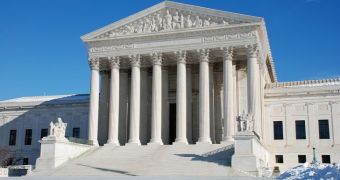The future of TV is in the hands of the United States Supreme Court and this might be just the worst idea ever.
Yesterday, the Justices heard the oral arguments in the case against Aereo, but they didn’t really seem impressed or to have a proper grasp on what they were actually supposed to rule on.
It’s true that the high court will only issue its opinion later this summer, but there’s already some insight into the direction they’re leaning, thanks to a series of transcripts.
Basically, the Justices weren't really big fans of the way Aereo operates, and they didn’t shy away from saying that it was clearly trying to get around the copyright law.
Even though Aereo tried to distance itself from more traditional cable options or satellite providers, the judges didn’t seem to be leaning towards it. However, the Justices did acknowledge the deep impact that their decision would have on other industries and services.
“I will be absolutely prepared, at least for argument's sake, to assume with you that if there were ever anything that should be held to fall within the public performance, [Aereo] should be. All right? I will assume that. I'm not saying it,” said Justice Breyer.
“But then the problem is in the words that do that, because we have to write words, are we somehow catching other things that really will change life and shouldn't, such as the cloud? And you said, well, as the government says, don't worry, because that isn't a public performance. And then I read the definition and I don't see how to get out of it.”
That being said, the court basically has to decide whether it will allow Aereo to exist even if it violates the Copyright Law in order to protect an entire industry area.
The Supreme Court is also questioning Aereo’s technical model, which involves leasing a small antenna and cloud service, which can then be used to access the broadcast of major networks. The service then takes the broadcasts from the antennas and streams them to the users, while also storing the recordings, like regular users would do with the help of a DVR.
The unfortunate aspect of this case is the fact that the Justices may be just a little too old school to understand the issue fully, which could give TV networks the upper hand.
It’s been obvious over the years, and particularly since the NSA scandal broke out that the judges aren’t tech savvy enough to make an informed decision about this type of issue, as they admitted.
Yesterday’s transcripts prove this once more as Justices showed that their tech knowledge wasn’t too extensive, with one of the members of the Supreme Court making a statement that HBO was a paid premium cable channel and believing instead that it was available for free over the airwaves.
Another one needed clarifications on the fact that Aereo users must access content online and then on the fact that despite this, it was not the same thing as video on demand.

 14 DAY TRIAL //
14 DAY TRIAL //